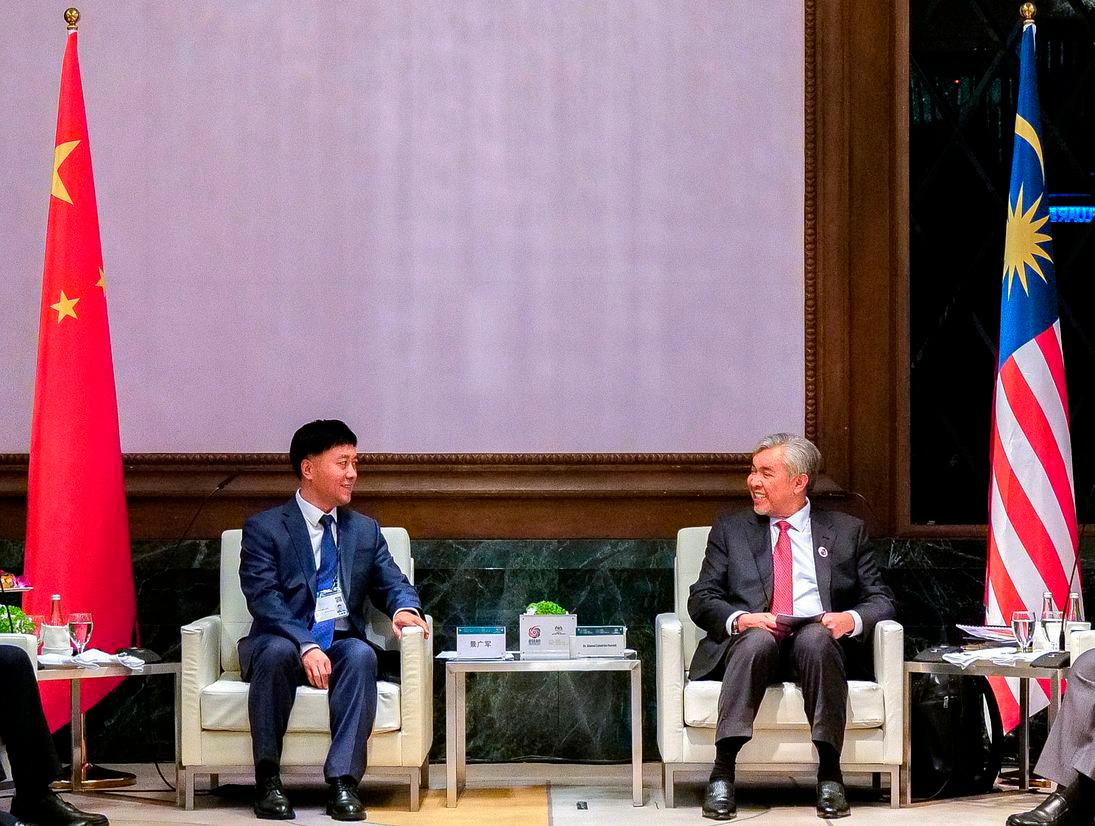KUALA LUMPUR: Malaysia continues to strengthen its role as a key facilitator in fostering closer economic ties between ASEAN, the Gulf Cooperation Council (GCC) and China through a series of strategic engagements held in conjunction with the ASEAN-GCC-China Summit 2025 here today.
Deputy Prime Minister Datuk Seri Dr Ahmad Zahid Hamidi said Malaysia, as Chair of ASEAN 2025, remains committed to enhancing regional economic diplomacy that is inclusive, forward-looking and people-centric.
“Among the key highlights were bilateral meetings with delegations from China, including the Guangzhou Industrial Holdings Group and the China Council for the Promotion of International Trade.
“I also welcomed investment delegations from the United Arab Emirates (UAE), including the Abu Dhabi Investment Authority, as well as from the Qatar Chamber of Commerce and Industry,” he said in a statement today.
Discussions focused on strategic sectors such as logistics, halal industry development, artificial intelligence (AI), automotive and green energy.
Ahmad Zahid also chaired an engagement session between government delegations and business communities from Saudi Arabia and China, which focused on expanding bilateral investments, with Malaysia positioned as a strategic investment hub for the ASEAN region.
“This initiative further strengthens Malaysia’s role as a key facilitator in linking the economies of ASEAN, the GCC and China in a more holistic and targeted manner.
“Today’s sessions reflect strong international investor confidence in ASEAN, a region with over 680 million people and a combined GDP exceeding US$3.6 trillion, making it one of the world’s fastest-growing and most strategic markets,” he said.
He added that Malaysia is not only hosting the summit but also demonstrating leadership by offering a stable investment environment, investor-friendly government policies and a clear, sustainable economic vision.
Ahmad Zahid expressed confidence that the close ties forged through the summit would drive job creation, high-value economic development, and the expansion of regional and global trade networks.
“I believe the outcomes of this collaboration and consensus will contribute directly to a more dynamic and sustainable economic future for Malaysia,” he added.









